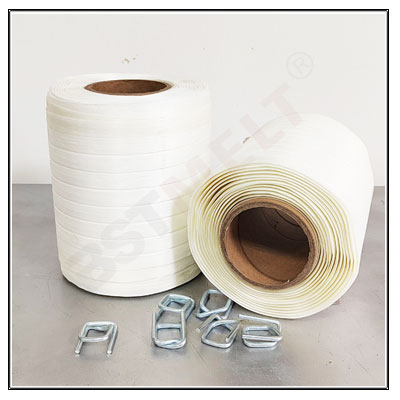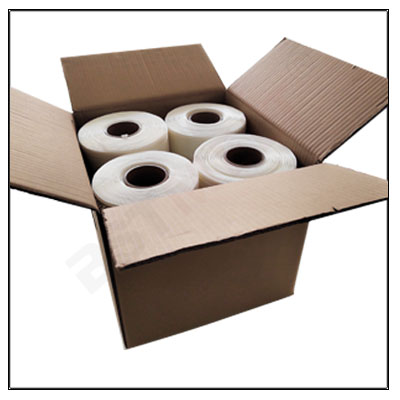9mm bale press strapping: A Sustainable Alternative for Cardboard Recycling
In the ever-evolving landscape of recycling, innovations constantly emerge to streamline processes and enhance sustainability. One such innovation making waves in the cardboard recycling industry is the adoption of 9mm baler banding as an alternative to traditional twine. This shift promises to revolutionize small to mid-sized cardboard and plastic balers, offering efficiency, cost-effectiveness, and environmental benefits.


Baler banding, typically made from materials like PET or polypropylene, presents several advantages over traditional twine. Firstly, its robust composition ensures superior strength and durability, enabling tighter bales and reducing the risk of breakage during transportation and handling. This sturdiness translates into increased efficiency and reduced downtime for recycling operations.
Moreover, 9mm baler banding boasts a higher tensile strength compared to twine, allowing for the compression of larger quantities of cardboard and plastic materials into compact bales. This not only optimizes storage space but also facilitates easier handling and transportation, ultimately lowering logistical costs for recycling facilities.
From an environmental standpoint, the adoption of baler banding represents a significant step towards sustainability. Unlike twine, which is often made from natural fibers such as sisal or hemp, baler banding is typically derived from recycled materials or virgin plastics, offering a more eco-friendly solution. Additionally, its reusability and recyclability contribute to the circular economy by minimizing waste and promoting resource conservation.
Furthermore, the use of baler banding reduces the risk of contamination in recycled materials. Twine, being susceptible to moisture and degradation, can compromise the integrity of bales and contaminate the recycling stream. In contrast, baler banding's resistance to environmental factors ensures the integrity of bales, maintaining the quality of recycled materials and enhancing their market value.
The transition to 9mm baler banding presents both challenges and opportunities for recycling facilities. While initial investment costs may be higher compared to traditional twine, the long-term benefits in terms of efficiency, reliability, and sustainability far outweigh the upfront expenses. Moreover, advancements in baler technology have made the integration of baler banding seamless, minimizing operational disruptions during the transition phase.
In addition to its applications in cardboard recycling, 9mm baler banding also proves effective in handling plastic materials. Its versatility and adaptability make it a valuable asset for recycling facilities seeking to diversify their operations and maximize resource recovery.
As the global push for sustainability intensifies, the adoption of innovative solutions like 9mm baler banding underscores the recycling industry's commitment to environmental stewardship. By embracing this technology, recycling facilities can not only improve operational efficiency and reduce costs but also contribute to the conservation of natural resources and the mitigation of environmental impact.
In conclusion, 9mm baler banding represents a sustainable alternative to twine for cardboard and plastic recycling in small to mid-sized balers. Its superior strength, durability, and environmental benefits make it a compelling choice for recycling facilities looking to enhance efficiency and sustainability. With continued advancements in technology and widespread adoption, baler banding promises to reshape the landscape of recycling, paving the way for a greener and more resource-efficient future.

Customers can purchase high-quality packaging consumables from us.
To make contact with us, please feel free to email:hailey@bststrap.com or call us on +86 1366574476
HomeNewsProductsSolutionDisclaimersPrivacyCooperationContact Us
Copyright © 2023 BSTSTRAP